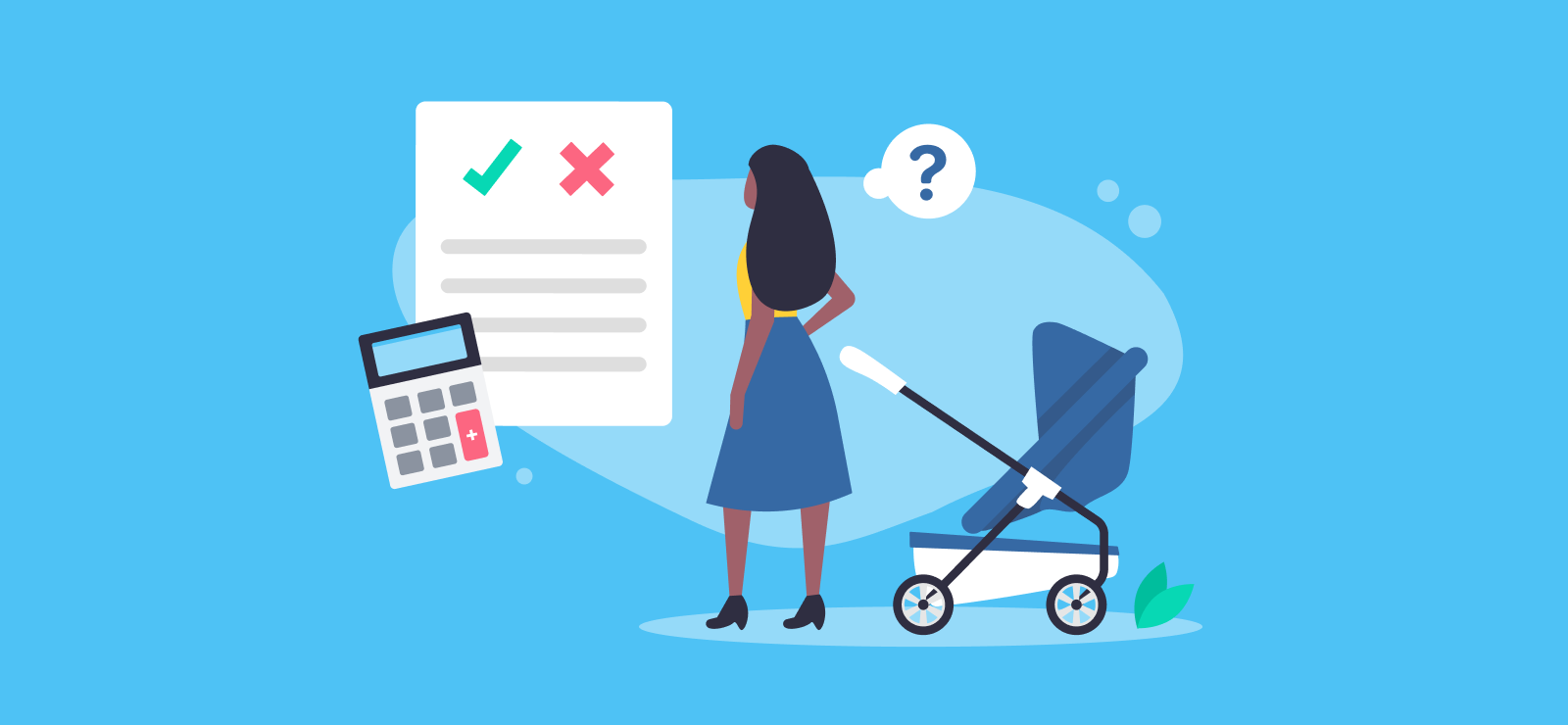

Can I Reclaim Transaction Fees as an Expense?
Once upon a time cash was king, but nowadays there are so many ways customers can pay businesses. From contactless and Chip-and-PIN, to e-wallets and even cryptocurrency, there are a broad range of payment options available.
Having so much choice can be super convenient for customers and remove some of the barriers to making a sale, but these transactions need to be processed, and that usually means handling or processing fees for the retailers, which can really add up.
With the costs of running a business soaring, any tax relief or cost reductions can go a long way towards staying afloat, so the good news is that transaction fees are usually an allowable expense.
What are transaction fees?
Every time a business processes an electronic payment, for example card payments in shops or online via their website, the provider charges a transaction fee to the retailer.
The cost of these transaction fees can vary quite a bit because each service provider sets their own charges. Generally speaking the fee can be anything from 0.5% to 5% of the transaction’s value.
Why do some shops insist on a minimum card payment amount?
We’ve all been there. You pop to the local shop for some milk only to find you can’t pay on your card unless you spend a fiver. Cue the mad scrambling for bars of chocolate and Pepsi Max.
The reason for this minimum spend rule is because some card providers charge the retailer a fixed fee for each transaction. Smaller merchants, like your local corner shop, may not accept card or electronic payments unless you’re paying enough to make it worth their while to pay the fixed fee.
Essentially, each transaction fee is made up of an acquirer fee and a processor’s fee, with different types of businesses attracting different fees.
For example
If you run an online shop and use something like Square, you’ll likely pay lower rates. However, Barclaycard Anywhere (for example) could work better for a local bricks-and-mortar store, as it often gives cheaper flat rates for contactless and chip-and-PIN payments.
What different types of transaction fees are there?
Understanding the various types of transaction fees can help you plan your operational spending, and minimise the risk of unexpected costs eating into your profits. It’s useful to choose a payment service provider who regularly sends a merchant account statement detailing all the fees you’ve paid throughout the month.
Fee structures and charges can vary from one provider to the next, so take a good look at the small print before signing up to anything!
What are interchange fees?
Interchange fees are paid to the issuing bank. The business bank you use (the acquiring bank) will also apply a fee, and then the processing company (the card company, such as Mastercard, Visa, or Amex) will add their charge too.
Terminal fees
Many people think Point of Sale (POS) terminals are only used in shops, but these days card payments can be accepted on the go by everyone from plumbers to hairdressers thanks to nifty little portable terminals. It’s worth doing your homework here because some POS terminal providers may also charge a fee of up to £800 a year, although some are free.
Subscription fees
Some providers charge a flat monthly or annual subscription fee rather than a fee per transaction. This can make it much easier to predict what your fees will be, and plan accordingly, although this obviously depends on the size of the business and how many transactions there are.
Tiered fees
Some providers charge different rates depending on whether the customer’s card is present or not when the transaction takes place. Transactions where the card isn’t present (e.g., online purchases) are riskier as they’re more vulnerable to fraud, so tend to be subject to higher rates.
Are transaction fees tax deductible?
The good news is yes. If a business uses something like Stripe to take payments it will make a bit less money on the sale, but you can include these fees as an operating expense. This means you can claim tax relief on them, helping to lower your tax bill.
Is there a way I can reduce my transaction fees?
There are three things you can try here:
- Shop around for lower fees
- Upgrade your POS system
- Combine your payment systems
1. Negotiate lower credit card processing fees
Regularly check to see if there are any competitors who offer lower rates per transaction. Yes, you need a reliable provider that easily allows you to take customer payments, but you also want to do this at the lowest cost, so shop around.
2. Upgrade to a better POS system
Consider whether your current POS system is actually fit for purpose. Some can take a longer time than others in processing transactions whereas others might be quicker but not particularly intuitive for your customers to use. Some are simply too clunky, taking up too much space on your counter.
The trick is in finding a POS system that’s fast, efficient, reliable, and safe, at the best price.
3. Streamline your sales (both online and offline)
Do you have both a physical shop and an online web presence? If so, you could be wasting money by having a separate payment processing system for each of them.
It’s worth researching a POS system that you can use for both. This will really help to streamline things, potentially saving you a fair amount of money too.
What is a merchant account?
You need a bank account if you want to take any kind of card payments, which is where a merchant account comes in. Think of your merchant account like a holding pen.
This holding pen contains your customers’ card payments whilst cash is taken from their account and received by yours. This usually takes a couple of working days, although some merchants can do payments instantly.
Merchant account providers usually charge a fee of anything from £5 to £15 a month for their services, but again, it’s worth doing your research and shopping around.
What is a merchant service charge?
You may need to pay a merchant service charge too. Sometimes these are called discount rates or interchange rates. Banks will typically charge fees of between 0.2-0.3% to cover their handling costs on credit card transactions.
What hidden fees do I need to look out for?
When you choose a payment provider you will likely be asked whether you want to add any other services, like chargebacks, accepting international payment cards, or sending invoices. Of course, as these are add-ons, you’ll probably be charged extra for them, although this depends on your contract.
As a rough guide, chargebacks (when a bank has to take money from your account and give it back to a customer) usually cost between £10 and £20. Invoices and processing foreign cards will generally add about 1% to the credit card processing fee.
The other important thing to remember, particularly where you’re selling goods, is refunds. These usually cost between 30p and £1 each. All sellers issue a refund at some point, and you might notice that the volume of refunds increases when sales do. Make sure you keep this in mind when looking at your cash flow!
Can I charge additional fees to customers who use credit cards?
Businesses are no longer allowed to add a surcharge for credit (or debit) card payments. In fact, it’s been illegal since 2018.
What else can I claim as a business expense?
It’s important that you claim all your allowable businesses expenses so you don’t pay more tax than you have to. The big thing here is that only expenses relating solely to the business can be claimed against your tax bill. In addition to transaction fees, these might include staff wages, capital allowances, office costs, travel, insurance, marketing, and business rates to name just a few. Phew.
Discover more about our online accounting services for small businesses. Get an instant online quote or call us on 020 3355 4047.
Want to learn more?
Subscribe to our newsletter to get accounting tips like this right to your inbox

Read more posts...

The Accountancy Partnership – Our Positive Reviews
16th February 2026We’re proud of our customers’ reviews here at The Accountancy Partnership The reviews we receive from our customers show how hard we…
Read More
Maternity Pay for Self-Employed People
15th February 2026As a self-employed person you might be eligible to get Maternity Allowance payments for up to 39 weeks. It’s different to Statutory…
Read More
National Insurance for the Self-Employed
14th February 2026If you work for your own self-employed business, then you may need to pay National Insurance on the profits that you earn….
Read MoreConfirm Transactions
The number of monthly transactions you have entered based on your turnover seem high. A transaction is one bookkeeping entry such as a sale, purchase, payment or receipt. Are you sure this is correct?
Please contact our sales team if you’re unsure
VAT Returns
It is unlikely you will need this service, unless you are voluntarily registered for VAT.
Are you sure this is correct?
Call us on 020 3355 4047 if you’re not sure.
MTD IT Quarterly Updates
Your final, end of year MTD Income Tax submission is included in your fee, without this add-on service.
We would recommend you submit the quarterly updates yourself using Pandle or alternative bookkeeping software.
However, if you would prefer us to submit these quarterly updates for you, there is an additional fee of £35.00 per month.
Call us on 020 3355 4047 if you’re not sure.
Bookkeeping
You will receive our bookkeeping software Pandle for free, as part of your package.
You can use this to complete your own bookkeeping, or we can provide a quote to complete your bookkeeping for you.
Please select and option below:
Call us on 020 3355 4047 if you’re not sure.

